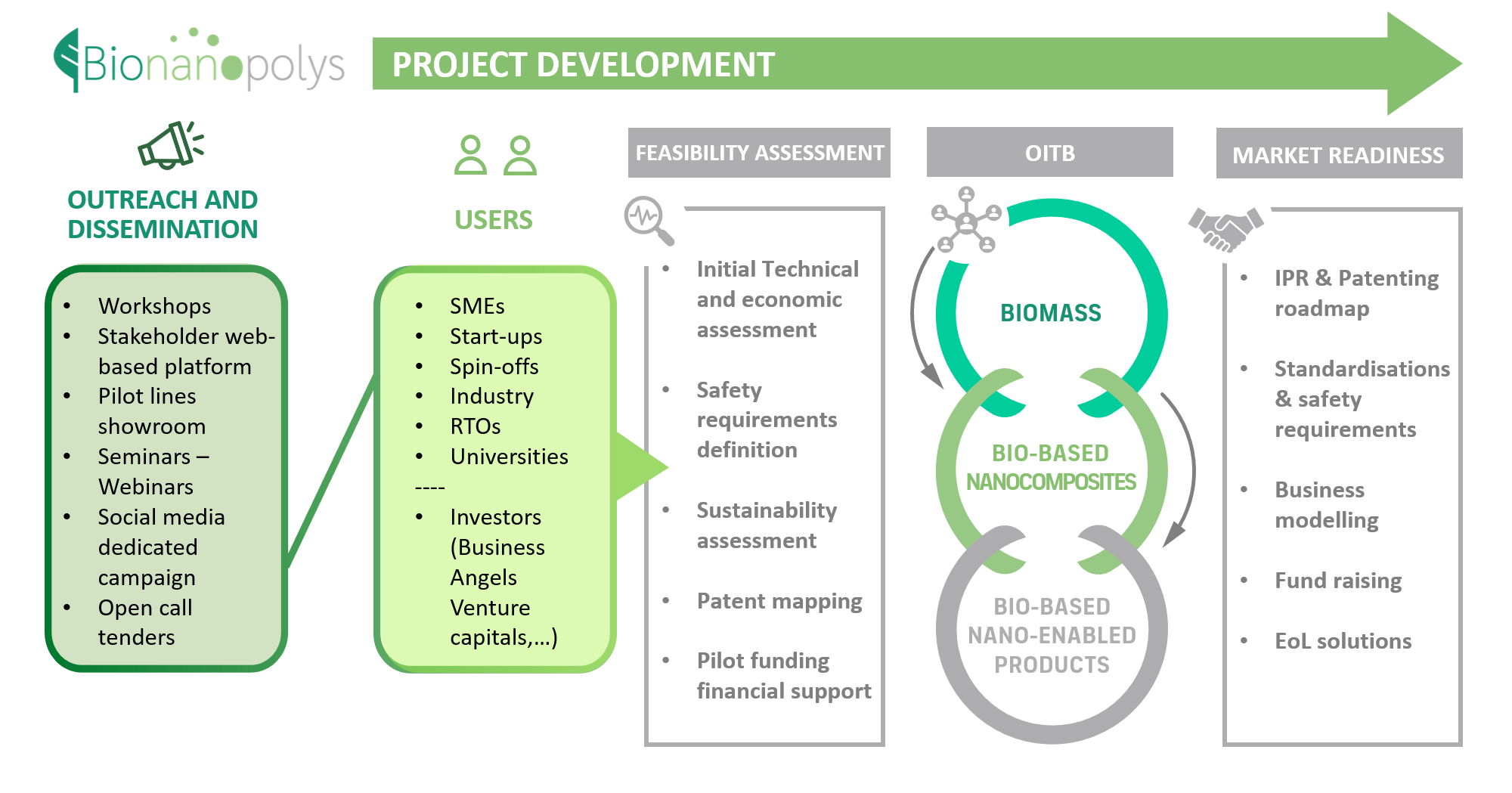
Unfortunately, the strike of coronavirus pandemic in Europe made impossible to celebrate a face-to-face meeting. Instead, a virtual General Assembly meeting was carried out on 21st and 22nd September.
Partners discussed the current activities and progress of the project. The meeting had as main aims to monitor and share the results of the tasks carried out in the previous 8,5 months.
Bionanopolys unites European experts in this field to transform these bio-based materials to nano-scale and, moreover, develop an Open Innovation Test Bed (OITB) environment. The aim is to manufacture innovative bionanocomposites from sustainably sourced feedstocks in Europe as well as bio-based nano-products for packaging, textile, agriculture, cosmetics, pharma or food.

For this purpose, Bionanopolys will use high lignocellulosic feedstocks for the production of cellulose nanofibers, cellulose nanocrystals, nanolignin and metallic nanoparticles on the one hand. On the other hand, high sugar content feedstocks will serve for the production of building blocks, organic acids, PHA and active compounds to create nanocapsules.
To speed up the introduction of biobased nano-enabled materials into the market by providing a Single Entry Point (SEP) for stakeholders, Bionanopolys aims at creating a network of 14 pilot plants and their complementary services. In this context, five pilot plants will focus on the development of bionanomaterials from biomass, three pilot plants are dedicated to bionanocomposites and six plants aim at manufacturing bio-based nanoproducts in order to reach a wide range of applications in different sectors. Pilot lines are going to be upgraded and fine-tuned across the entire Bionanopolys value chain.
Thereby, for the first time, Bionanopolys will create an integrated platform of technologies and scientific expertise devoted to the nanotechnology based on bio-based raw materials. This is complemented by a comprehensive portfolio of services for the development and integration of new bio-based nano-enabled products.
